“It’s risk-taking that will result in development, in evolution, in adaptation of educators.”
Ellena Lopez : 0:11
Hi, and welcome to our podcast on Leadership and Risk-Taking in Education for LEAD Collaborative. I’m Ellena Lopez, an educator and English Department Chair at St. John’s School in San Juan, Puerto Rico. I’m a single mother of two sons and I have about 100 plus students that I teach and or advise, and I also consider them my kids, and I’m a leader of teachers.
Yolanda Adames : 0:36
Hi, I am Yolanda Adames, I am the principal of the upper elementary at St. John’s School in San Juan, Puerto Rico. I am happily married, I have two children both pursuing careers in the field of health. I consider myself to be a mentor to my teachers and my office is their safe spot and it is also a safe spot for my students and parents, and it’s a place where my teachers love to work in collaboration
Ellena Lopez : 1:08
So today, we’re talking about leadership and risk taking in education and how to make significant shifts in classroom instruction with faculty in order to align with the school’s vision, their mission, and the graduate profile.
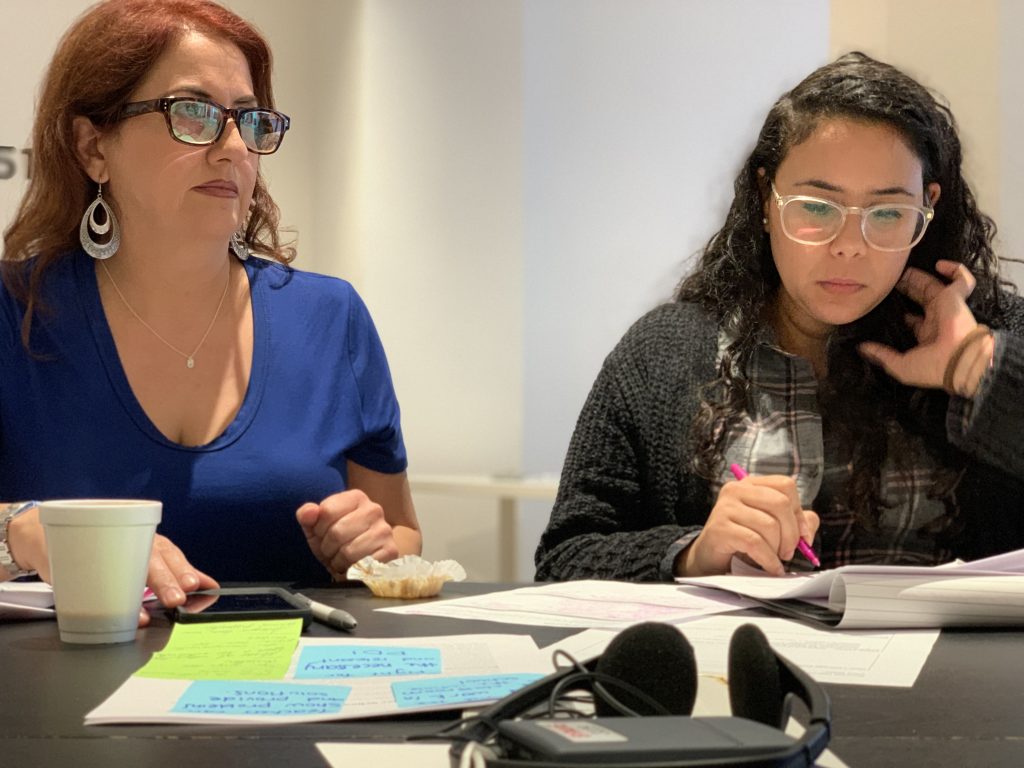
Yolanda Adames : 1:23
Yes. And we will also be talking about the importance of collaboration and the willingness to become agents of change.
Ellena Lopez : 1:32
So, Yoly, I think it’s important before we get started, for our listeners to have some background about how we got to the place that we are. Could you share a little history of where this shift really started and a little behind the scenes of where we were?
Yolanda Adames : 1:51
Sure. Lorraine Lago, our Head of School is an intelligent and visionary person who is beyond her time and is always thinking ahead. She has very clear expectations for our school and always wants us to strive to do our very best. Our goal is to live by our mission. So that the big question was, how do we make sure that as leaders that happens? So in group discussions, we realized that there was room for improvement, we noticed that our model for teacher growth had become unusable because everyone was proficient or distinguished. I think that our biggest question was looking at evaluations and wondering, why wasn’t the needle moving forward for teachers and student growth. Why, they just weren’t moving forward at all. A few years ago, she asked us to revisit our model, persuasion evaluation and she gifted us, the academic administrators with a book titled Instructional Rounds in Education, which focuses on a network approach to improve teaching and learning. With our Dean of Academics John LaRue, we went into classrooms as a team in all divisions, and collected information that we later classified and analyzed. We realized that the majority of the classrooms were teacher driven. And teacher centered, students participation was minimal, and questions and tasks lacked rigor. a plan needed to be put into place to evoke change. So for me, that was great. John helped me carve out a three-tiered plan for the upper elementary. First, analyzing student work with a common definition of what rigor really was, common resource for planning using a UbD template, and teacher observations that were focused more on the student and the task at hand. Ellena, this was all new and you can imagine the chaos that this provoked in some of the teachers. We had to decide, we had to decide what we want. And the reality is that what we wanted was alignment with the vision, mission and the graduate profile. We wanted a community of learners and students in student-centered classrooms. The hardest part is to create a culture that requires us and a development of relationships with teachers. Painful, let me tell you painful. Change can be painful, and I just had to take that risk. If I wanted to be that transformational leader, that has always been my dream. I have to work with my team to identify areas of growth and create a vision for my teachers.
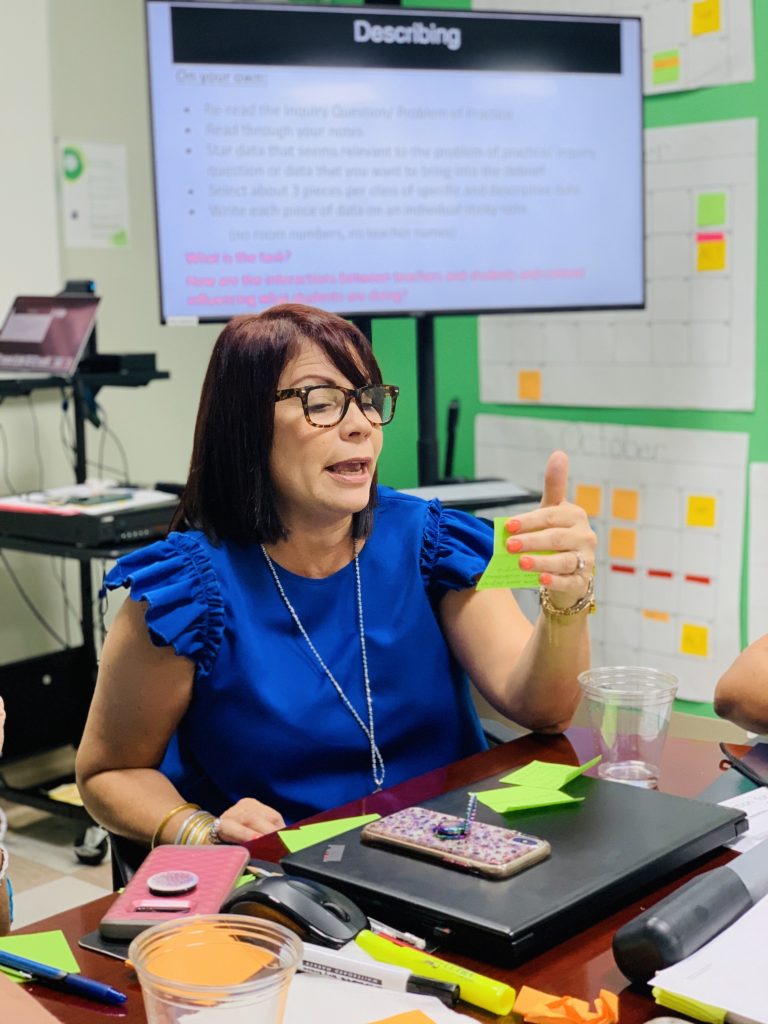
Yolanda Adames : 5:08
So with that, let’s move on and talk a little bit about LEAD entering the picture? Can you tell us a little bit about what LEAD is, LEAD Collaborative?
Yolanda Adames : 5:16
Sure, I’d love to.
Ellena Lopez : 5:18
It’s a public private, collaborative, network dedicated to building the capacity of school leaders and their communities through shared learning experiences that improve academic outcomes for all students in Puerto Rico. The purpose of this initiative is to address gaps in supporting school leaders from K-12 public and private schools in Puerto Rico. With the ever expanding role of school leaders, it’s crucial that they are provided the tools and support to prioritize instructional leadership in support of high quality teaching, and excellent outcomes for students. This is LEAD’s first year and we are part of the pioneer program.
Ellena Lopez : 6:12
Yes, we are.
Yolanda Adames : 6:13
And we were invited to become Fellows. And I do have to say that, number one, we make a great team because we have a lot of things in common. Our teaching style and the fact that we see education with the same mind. Other members of LEAD have become our family. This opportunity has helped us realize that public and private schools share the same concerns and working together provides us with a support group that helps us continue to grow as leaders of change.
Ellena Lopez : 6:49
I want to add to that, what you’re saying there about our connection to LEAD, and I want to add that honestly, the opportunity that I was given to be a part of this and the gratitude that I have for those who trusted in my capability to be a part of this movement. And Yoly, it is a movement.
Yolanda Adames : 7:12
I agree.
Ellena Lopez : 7:12
I didn’t think I would see something like this collaboration happen here. You know, I’ve been following along time the changes that have been necessary and needed to happen in education reform and how things are picking up pace and moving and how things have already started moving and following things like Education Reimagined and other venues and you know, when I had my moment of evolution as a teacher, because of the AP Capstone program, I wondered if we were ever going to see anything like this happen in Puerto Rico. And here it is, you know, right? The beginning’s tough because you’re wondering, where’s this going? What is this all about? What are we doing here? Right? What’s going to happen? And there was a part of me that kept thinking okay, is this going to last? Is this just too good to be true? Can this really go somewhere? You cross your fingers, you say to the universe,”This is going to ignite!” And you hope that if you put it out there, the universe is going to hear it. But I think Yoly, when you believe in something, when you believe so deeply that a change must happen and then LEAD’s presented to you, you jump at it, you know, I jumped on it. I tried to act nonchalant because I thought don’t frighten anybody with this passion that you have. I didn’t want them to think I was some kind of education zealot, you know. But, then you get in and like you said, that connection of public, private, and charter, you realize that, wherever we’re coming from, that we’re coming from those places as educators, and we’re all, all of us, are facing these similar challenges. That things have to change with the way we’re teaching and that’s going to involve major risk-taking.
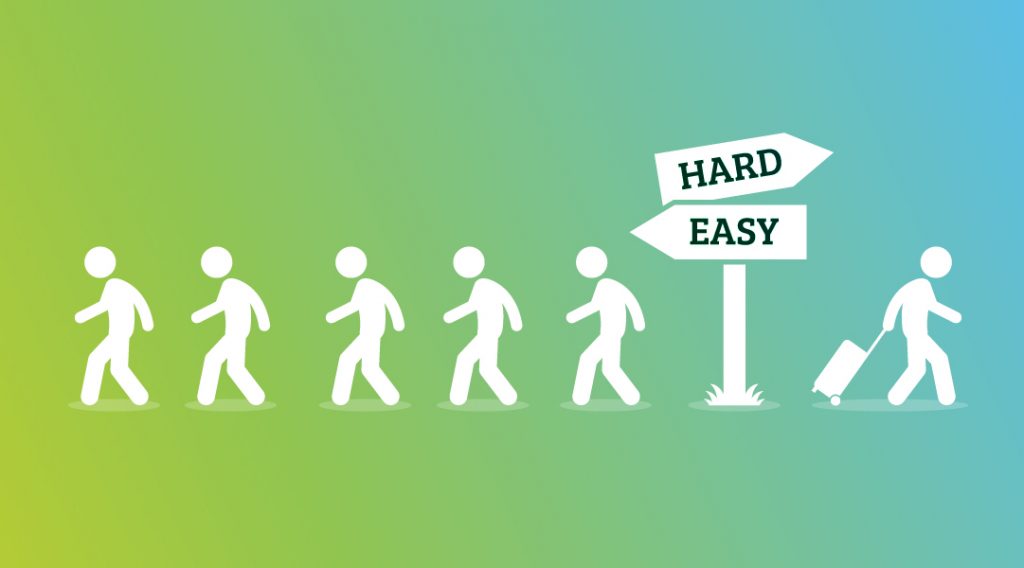
Yolanda Adames : 9:08
Totally agree.
Ellena Lopez : 9:09
Right? It’s, that kind of risk taking, that, you know, can cause a loss of your job if it fails, right? If you put yourself out there, and if it doesn’t succeed you know, the repercussions there. Then I think you believe so strongly in something that you’re willing to take that risk if it fails, because you believe in the possibility of the success. You know, that it could cause, like I said, that loss of possible job or you know also that it can cause a loss of relationships with really amazing people who as colleagues in the profession, you know personally are amazing, wonderful people and great educators, and they just refuse or don’t want to change, don’t want to grow. But, on the other side, you believe in it so much that it’s that kind of risk-taking that can reap rewards that you know are going to impact children for years to come. It’s risk-taking that will result in development, in evolution, in adaptation of educators. You said it a little before when you gave the history…change is hard, but it’s necessary, and it has to happen for growth.
Yolanda Adames : 10:24
Well, I totally agree with you.
Ellena Lopez : 10:26
You know Yoly, you’ve really in our relationship here with LEAD Collaborative…you’ve really taken on that mentor and support role in our relationship. What would you say has been a significant moment in this experience for you?
Yolanda Adames : 10:43
Ellena, you know, every moment has been a great learning experience for both of us, but the most significant moment was when we were creating our game plan and you finally realized the steps and the role you would need to have in order to put this plan into place. And let me tell you your face was worth a million bucks. You didn’t know if you wanted to laugh or you wanted to cry.
Ellena Lopez : 11:14
Yes, yes. I remember that, that was the Five Why’s day, right? Getting to the root cause as to why we were encountering this disconnect between professional development, this great professional development, right? I mean, top notch, that we’d been making, trying to make, we’d been having that for a while and then there was a disconnect between that and long term implementation in classroom instruction. And that was a hard day for me! You were there next to me, right? And you’re supporting, and you’re pushing, and you’re telling, and I’m trying to get you to not give me the answers, but kind of like, “Come on, give me a little something here”. And you were just supportive. Remember? Then we had to sit with Lola and Ursula and we had to process it and craft the game plan. And there’s, you know, Angie over my shoulder because I was just being hesitant… trying to be so nice and diplomatic in the way I was wording things and she’s just…she just says it…that’s her… she just blurts it out, like, here’s what it is. And she says, “Ellena, don’t overthink it. Stop being so nice. Just label it. Just be honest. Think about the kids and stop worrying about the feelings of the grown ups”. You know, it was right there… it was all of those pieces that just went POW! Right? But to get to that place, to get to that day, I had to see the writing on the wall. That happened for me during that first set of instructional rounds…Let me go back. We have had a set of instructional rounds from you and the rest of the administrative team, but now this set of instructional rounds was with Fellows from LEAD and the first round was at our school. That was at Saint John’s
Yolanda Adames : 13:08
And we had the same findings.
Ellena Lopez : 13:10
Yep. Yep. Exactly. And that’s, that’s what had to happen for me. I had to see that, here was a group of professional, intelligent, educated colleagues and educators in the field from a variety of backgrounds…completely objective, coming in with fresh eyes. Right? They really didn’t have…they couldn’t be subjective because they didn’t know the environment. They didn’t know the relationships. So here they come in and do the same instructional rounds. And the identification after the rounds was, it was that ‘Aha’…Right? Like,”I knew it, and you labeled it”. It was the things that we’ve been talking about, that you’ve been talking about. That we had just been going around in circles with it for so long and it took the other fellows identifying through rounds for me to know there’s going to be a big risk, it’s going to be taken and there’s going to be people that aren’t going to be happy, and aren’t going to be happy with me, and aren’t going to be happy with environments. Yoly, do you think you could talk a little bit about that ‘Aha’, and maybe your initial thoughts on what this would mean for me in my division, given what you’ve been through. The mindset shift that we knew had to change. Sure. You know Ellena, it’s like, it’s like giving birth, the end result, the end results of all the aches and pains, right? I knew that this plan that was created would be successful. And I also knew that it was not going to be easy. And I know that because, I had already started the process in my division. We have a great group of educators. That’s something that’s to our benefit right now in our school. But creating a mindset shift. Hmm, that’s not easy at all. And the very first thing that I knew you would need was to create a teacher learning environment where the participants felt comfortable enough to let down their guards, and become vulnerable and make the willingness to learn and try new strategies and then, and then change. With that, did you have to establish and take out the factor of… the fear factor of risk- taking with the teachers?
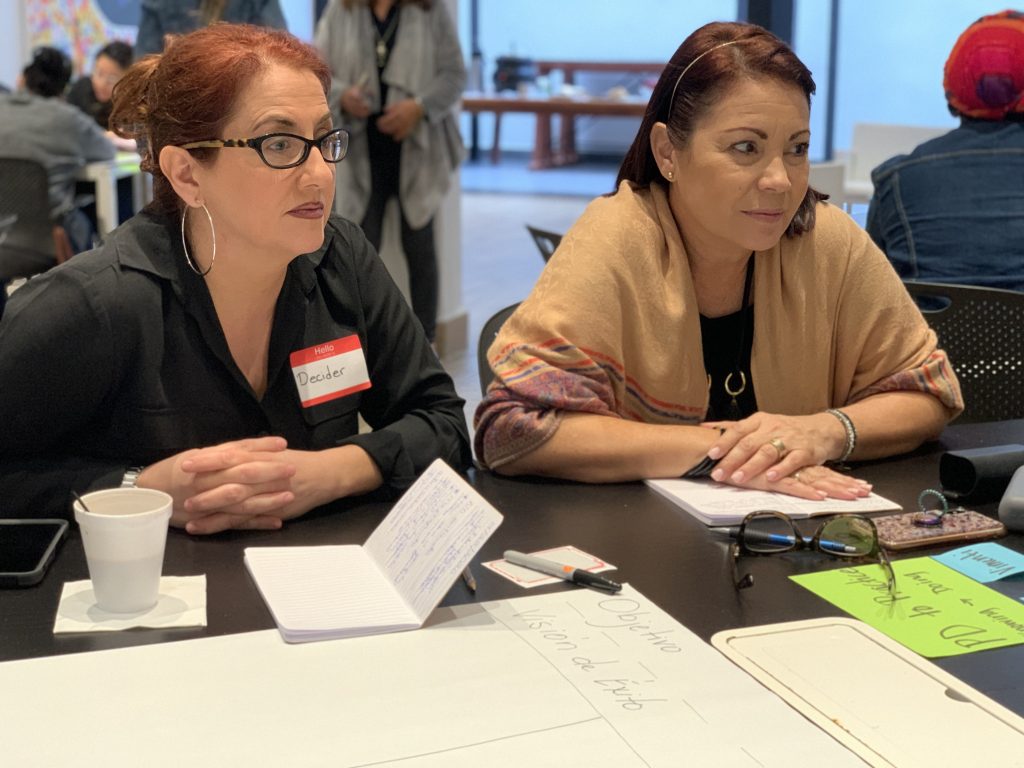
Yolanda Adames : 15:55
You know, once ..yeah, sure. Once they felt that they were not being judged. And this was not about them as teachers, but rather the students, that our focus was the students and that everything, any change, that we would have would be for our students. So that we could have the proper environment for their learning. Right? Once they were clear about those expectations, it was easy for them to start to let down their guard. And be part of part of the process. And I think that in working hand in hand with your co workers, and collaborating, right, that word collaboration is key.
Ellena Lopez : 16:48
I’d like to add a little of my own perspective in here that’s evolved as a result of my own continuing education and my research because I know that that’s what’s helped me embrace this challenge and not be too fearful of the change that I knew was going to happen…was going to transpire. We know that education is a continuous process. It’s not a single event. We just need every student to believe that it’s a lifelong process. And that’s our goal. That’s what we want in the end is to create lifelong learners, right? It doesn’t, it doesn’t end with the graduation or the granting of the degree. And it doesn’t end when you reach a particular age. Unfortunately, I believe that when that happens for some people, when they just…when they don’t believe in neuroplasticity, or they resolve themselves to this place of I’m done growing…I believe we begin to decay, we begin to die. And then what’s the function and purpose there… we know our success and happiness and satisfaction really lies in the growth. Formal education in the way that we know it, the way that it’s happened for over a century…it no longer serves the needs of any of our students globally in the 21st century. And I think to ignore that, to still believe that learning in that way, learning in this decontextualized classroom…where students really aren’t shown applicability or shown the need for interdependence with other disciplines…where the teacher serves as the oracle of knowledge and they impart that knowledge, that content knowledge upon the student…It serves as a massive disservice to not only the capabilities and the purpose of our students, but it’s also a disservice to the capabilities and purpose of the educators in this time and era. As educators, changing the future of education means we have to be evolving and transforming ourselves into facilitators of knowledge…so that we not only teach the skills that students need today, you know, navigating, collaborating, how they can problem solve, inquiring and critically thinking, but we have to evolve into that place of engaging our students by being culturally responsive. We have to help them understand and develop compassion…we have to help them with grit and integrity and diversity and…
Yolanda Adames : 19:40
Our mission.
Ellena Lopez : 19:41
Yes, right? That’s it! And that’s what we were looking to. By doing that, then the student centered-classroom, it naturally evolves. We see students that develop their inherent talents and they become empowered to know that they can understand anything, as long as they stay curious, right? As long as they are provided the tools. And as long as they are given the support for their way of learning. As long as they know the grown ups in the room are going to support them getting to the end goal. So, you know, to be in this space and time right now and to be a part of this evolution, on this big macro scale, at a school that has that vision and that mission in mind and requires this evolution to happen…in this leader position, working with a Head of School, who believes in the vision and the mission and has the tenacity to move forward and believes that movement in the change and adaptation of the teachers…that’s amazing…working towards that change, it’s tough. But having a Head of School who’s pulling in that direction at all costs, that’s the bonus there. You work as a leader under that and it means you’re aware that change is going to happen. It’s going to happen regardless of any other differing philosophies. We have our goal. We’re going to get there. It’s not an overnight transformation. It’s taken us years to get here.
Yolanda Adames : 21:27
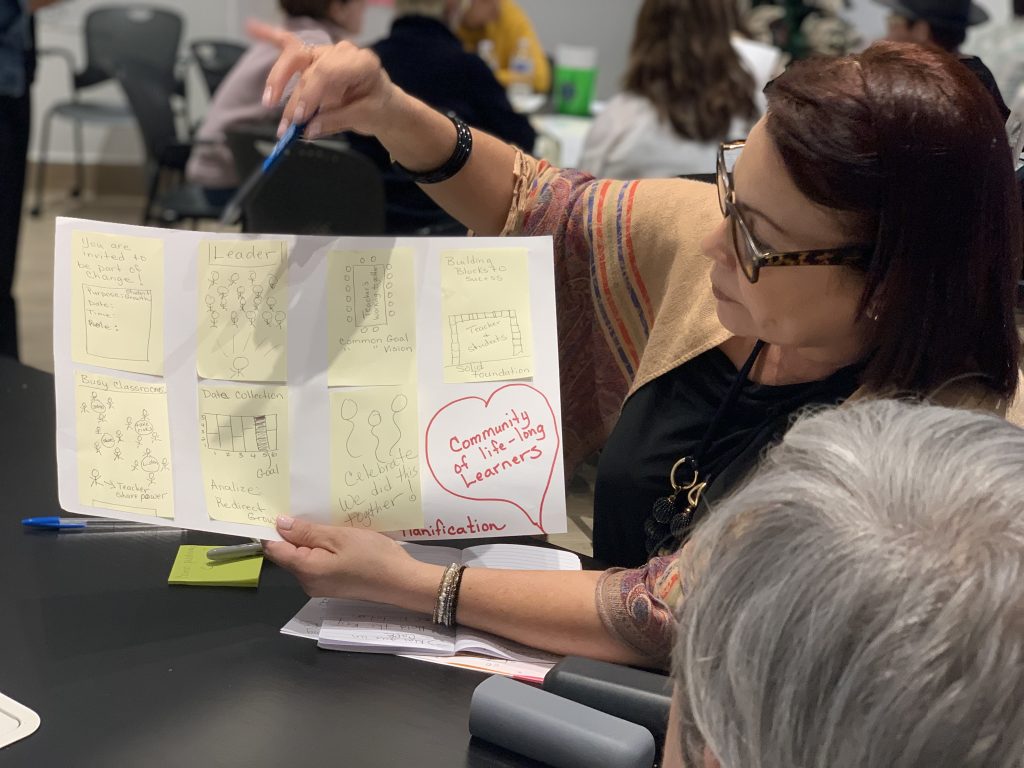
That is true.
Ellena Lopez : 21:28
But we’re here, we’re here, we are in the future and being a part of that…that’s exhilarating and frightening at the same time!
Yolanda Adames : 21:37
I totally agree with you… totally agree with you.
Ellena Lopez : 21:40
So Yoly described what we needed to do in the secondary and we had our game plan. So where are we right now? Well, we implemented the game plan, the beginning of it, and it didn’t happen in the way that we thought it would and well, that’s life right? You make these plans and things come along. There were several variables that needed to be taken into account and the atmosphere had to be right. But we just didn’t get to the moment in the way that we planned. And what happened was a series of other moments. We had the key player in the plan who had an aha, a moment themselves. And we had a check-in with Stephanie Reinhorn and Stephanie identified that we had this layer of players in place that weren’t being used the way that they could to implement the change…those were the Department Chairs.
Yolanda Adames : 22:11
She saw it so clearly.
Ellena Lopez : 22:23
Right? Remember that? Here we’re standing in it and she went and….she just pinpointed it. It was fabulous…then we had the LEAD session, right, with some of those players to reveal the direction that we were going to be heading and then the moment happened and then it happened for us right as we started to implement the game plan. And, you know, what we had in our favor, was that we had the Department Chair meeting and that meeting established… that meeting was with the Principal, Mr. Sanabria, and the Dean of Academics, John LaRue… And that meeting established the changing role of the chairs. In order to change the teaching, the chairs would be necessary as coaches for the faculty, and teaching fewer classes and focusing more on teaching the teacher and coaching was going to be the direction that we would go. And you’re either on board and we’re a team, or we’re not, right? And then we moved to distance learning a week later. Right? And had that not happened…Yoly, the conversations you and I have had about what if this would not have taken place? What would the success of distance learning look like? Would it have, you know, that meeting was instrumental in solidifying this team of Department Chairs and saying, here’s how that’s going to transpire. So that we could assist the Dean and the Principal in carrying things out and going online with our courses. That’s what took us to this place. So you want to talk about where we are now? You want to fast forward us from the beginning of March to now?
Yolanda Adames : 24:34
Like you said, we were forced to teach by a distance learning program that was developed in a couple of days, right? And I believe that our success is a result of the great faculty that we have and the fact that part of your game plan was put into place. We needed to have a group of department heads that had a clear understanding of their roles and what direction the school was moving towards, right? They also had to have a clear set…they had to know what direction the school was moving in, but at the same time this was happening in the elementary for a couple of years. The Department Leaders were crucial in helping us move forward with this plan. And that was a blessing.
Ellena Lopez : 25:31
It was incredible, right? I mean, it was a period of 72 hours and everything had just transformed, right?
Yolanda Adames : 25:38
Oh, my goodness…it felt like a month.
Ellena Lopez : 25:44
It is, it’s incredible. In a few days, we pushed the faculty to completely move their classes online, like you said, the most incredible thing was we had teachers who were just admitted technophobes, right? Technology, forget it. They didn’t want laptops used in their classrooms. and cell phones, are you kidding? That’s, you know, that’s the the evil of society… but Yoly, they did it. They transitioned to distance learning. It was incredible…for a faculty to completely shift successfully…wow… right?
Yolanda Adames : 26:28
We raised the bar.
Ellena Lopez : 26:30
Exactly, now that we’ve raised that bar and upped that ante, and they’ve shown that they’re capable…that they’re capable of change, we keep moving. I look down the road, because we have to now, at the uncertainty of what our return looks like…we know we’re returning, but what shape that takes and what it looks like, that’s the uncertainty. And now that they can do it, you know, we know that this isn’t going to go away. We’re here in the future. We have to begin looking at how we’re teaching online. How do we incorporate that with the classroom instruction? How do we make that hybrid? And we continue to push forward with the game plan, it doesn’t disappear. We have to keep moving with the next step. You know, Yoly, I don’t know how we do that now and also keep the mental load in check for our faculty. We find ourselves in this historic moment, but I believe without a doubt, it’s the moment to strike. It’s the moment to make the changes. How do you see us moving forward?
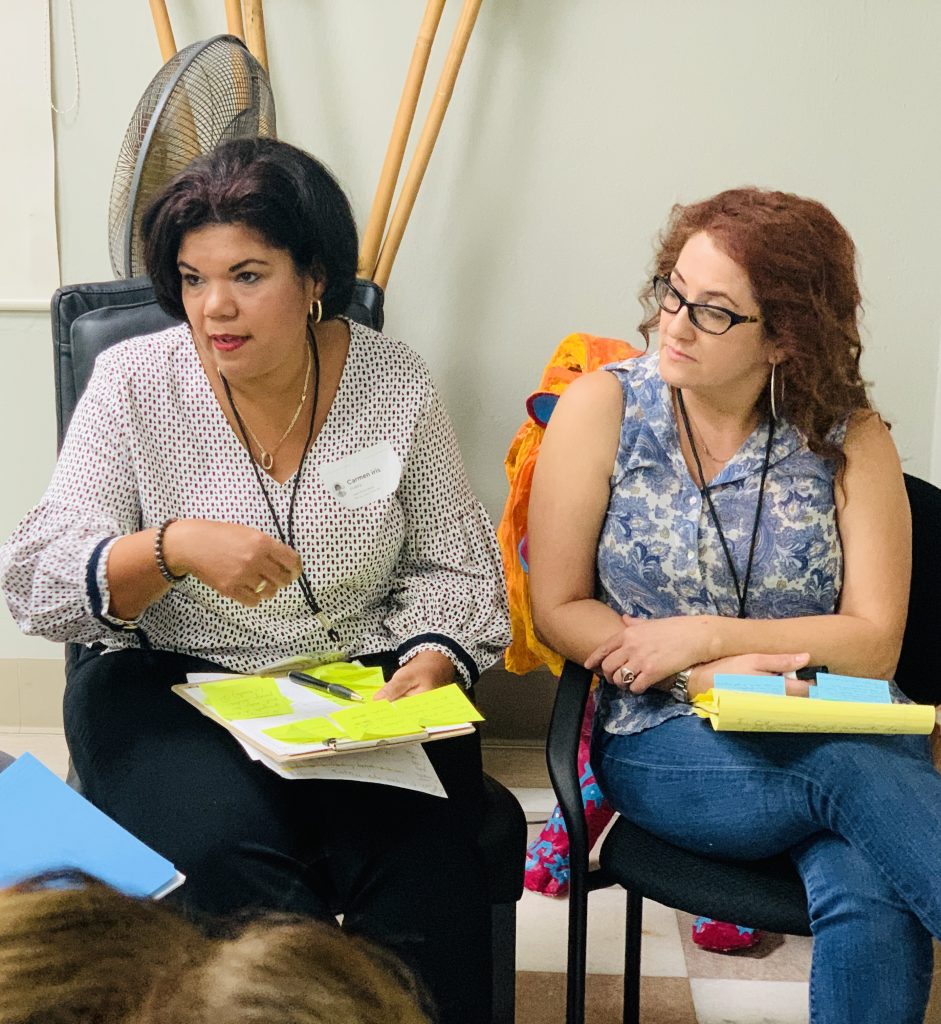
Yolanda Adames : 27:41
Ellena, it will never be the same. Let’s start with that. Granted, our perspective has changed and like you said, the mentality for the teachers has changed and when we get back to school, right, I am more than sure that we will see a community of lifelong learners, among faculty and among our students, and we’re going to see people that are going to be willing to take risks. And, and taking risks will no longer be an issue. That will not be an issue anymore. This has been the biggest hurdle in life we could have to work with. I don’t think we’re going to have that issue anymore.
Ellena Lopez : 28:34
I think about… you and I had discussed before, and you put it really, really nicely about this invisible virus…this virus that we can’t see and how it’s going to transform what we’re doing and forcing us to make these changes. We talked about how Hurricane Maria brought out this resilience and ability to move forward and it was that physical, we can do this thing. But then we still kind of stayed in a place of,” Okay, now we’re back to normal”, with this we’re forced, right? I remember that conversation that there’s no other way.
Yolanda Adames : 29:19
There’s no other way to go There’s no other way and, and if that tiny, tiny virus was able to stop the whole world, right, and keep us locked up…it’s an opportunity to rethink our…what we do as a teacher because we impact, we impact lives and we are part of what they will be in the future. So I think that it’s going to be completely different now.
Ellena Lopez : 29:51
In a good way.
Yolanda Adames : 29:54
Exactly, in a very positive way.
Ellena Lopez : 29:55
Yeah, in a very good way. So I’d like to close by quoting you. We’ve had numerous conversations this year about what we’re doing, and in one of those conversations, you said something and at the moment, I don’t think you realized that it was significant to me and I jotted that down. And you said, “It’s not about me as a teacher. It’s about the service I provide for all my students. And is that service equitable and obtainable for all of them”. You kind of threw that out there. And I felt like, yeah, that’s it. That’s what it’s all about.
Yolanda Adames : 30:39
Ellena, well, I would like I would like to close by saying that if we truly want to be those transformational leaders that you and I have spoken so much about our role as a mentor is crucial. We have to learn to delegate, collaborate, and be active agents of change. I feel very happy to have you as my partner and my fellow. And I’m extremely proud of this process and every part of you that has embraced it, right? And I hope that we can continue working together in making a difference in our students’ lives. And that’s the bottom line. That’s what this is all about.
Ellena Lopez : 31:38
I completely agree. So we look to the future, right?
Yolanda Adames : 31:42
That’s it and we do it together
Ellena Lopez : 31:44
And we do it together, yes. So thank you for listening and take care.





